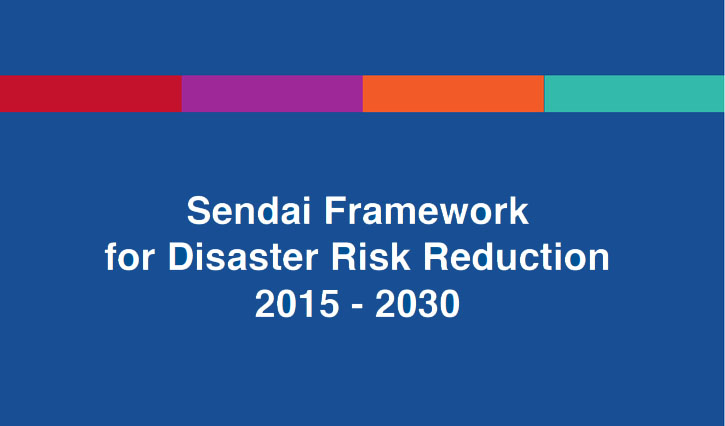Results of the Regional Forum-Meeting of the Heads of Emergency Authorities of Central Asian countries
Dushanbe hosted a regular Regional Forum - Meeting of the Heads of Emergency Authorities of Central Asian countries.
This high-level event was held on 4-6 October 2022 as part of the European Union-funded program “Strengthening Financial Resilience and Accelerating Disaster Risk Reduction in Central Asia”.
The Regional Forum was attended by more than 70 people- delegations headed by the heads of emergency d authorities of the Republic of Kazakhstan, the Republic of Tajikistan, Turkmenistan and the Republic of Uzbekistan, representatives of UN agencies, donor, international and non-governmental organizations.
Opening the Regional Forum, the Chairman of the CoES under the Government of the Republic of Tajikistan, Colonel-General Nazarzoda Rustam noted that the results of the Forum will give a new impetus to the dynamic and harmonious development of joint cooperation between the countries of the region in disaster risk reduction.
“Involving such a wide range of stakeholders in disaster risk reduction contributes to the further development of a constructive dialogue, the exchange of information and experience, and the strengthening regional cooperation in disaster risk reduction,” he stressed.
In his speech, Deputy Prime Minister of the Republic of Tajikistan Sulaimon Ziyozoda noted the importance of Forum. “The organization and holding of this Forum, with the participation of high-level representatives and experts, is an extension of our countries’ efforts to mitigate the negative impact of climate change and, in particular, natural disasters, which will allow us to increase our efforts in this field” the Deputy Prime Minister emphasized.
The heads of emergency authorities of Central Asian countries noted the relevancy of the issues submitted for consideration by the Regional Forum, the need to use innovative information and communication technologies in disaster risk reduction.
In his speech, the Minister for Emergency Situations of the Republic of Kazakhstan, Lieutenant-General Ilin Yuriy, noted that the Regional Forum-Meeting of the Heads of Emergency Authorities of Central Asian countries is a very important and significant event for the region in strengthening cooperation in disaster risk reduction and emergency management.
Lieutenant General Ilin Yuriy noted that "... One of the important directions in the implementation of the Strategy for the Development of Cooperation between Central Asian countries in Disaster Risk Reduction for 2022-2030 is the implementation of measures to integrate early warning systems and alerts about the threat of emergency situations ..." and called for the approval of the submitted for consideration by the heads of emergency authorities delegations of Regulation on the Regional System of Early Warning and Mutual Information on the threats and emergencies and the Protocol of Intentions on the integration of earthquake early warning systems, developed at the initiative of the Ministry for Emergency Situations of the Republic of Kazakhstan. He emphasized that “... This step would be demonstration of our commitment to achieve the global objectives of the Sendai DRR Framework and a response to the call of the 7th session of the UN Global Platform for Disaster Risk Reduction in Indonesia, voiced by Ms. Mami Mizutori, on the need to ensure accessibility for the entire population of the Earth to the early warning system…”.
The Minister of Emergency Situations of the Republic of Uzbekistan, Major General Kuldashev Abdulla drew the attention to the environmental problems of the Aral Sea region and measures to mitigate the consequences of the drying up of the Aral Sea. He noted that “... the Republic of Uzbekistan is taking a set of measures to improve the environmental situation in the Aral Sea zone. In particular, forest reclamation activities are being carried out on an area of 1 million 679 thousand hectares…”. Major General Kuldashev Abdulla drew the attention to climate change disasters: melting of glaciers, the threat of outburst of high mountain lakes, low water and others. He also noted the importance of seismic safety and informed about measures taken in the Republic of Uzbekistan.
The Head of Civil Defense Department of the Ministry of Defense of Turkmenistan, Mr. Annagurdov Merdan, noted the importance of coordination between regional emergency authorities, international and non-governmental organizations, and other stakeholders in the implementation of disaster risk reduction measures.
The Head of the UN Office for Disaster Risk Reduction for Europe and Central Asia, Mr. Octavian Bivol, thanking the Government of the Republic of Tajikistan for meeting, stressed that the UN will continue to focus to addressing issues related to the risk of natural disasters. In particular, Mr. Bivol said: "... the UN Office for Disaster Risk Reduction will provide further support to build resilience to natural disasters and climate change in Central Asia."
Speaking to the Forum participants, the EU Special Representative for Central Asia, Ms. Terry Hakala, noted the importance of the problem related to the natural disaster risk, which must be resolved together.
During the Regional Forum, special attention was paid to the issues of international cooperation in disaster risk reduction. In particular, a number of events took place during the forum - breakout sessions, reports of the heads of foreign delegations. The participants discussed issues of further implementation of the Sendai Framework in the countries of the region, studying the experience of countries in the aftermath of major natural disasters and the recovery, an inclusive approach, cross-border cooperation and attraction of investments in disaster risk reduction in implementing of the Sendai Framework in the countries of the region.
During the Regional Forum, bilateral meetings of the Heads of Emergency Authorities of Central Asian countries were held. It should also be noted the working meetings of the heads of delegations, with the participation of the leadership of the Center for Emergency Situations and Disaster Risk Reduction, with the head of the regional office of the UN Office for Disaster Risk Reduction in Europe and Central Asia Oktavian Bivol, Deputy Executive Secretary of the UNECE Dmitry Maryasin, Vice President of Disaster and Emergency Management Agency of Turkey Ismail Palakoglu, World Bank Manager Mr. Christopher Push, Head of the Department of the Asian Center for Disaster Reduction (Japan) Mr. Arakido Masaro, where the issues of strengthening and developing cooperation between countries of the region in disaster risk reduction were considered. In particular, Mr. O. Bivol proposed to visit the Emergency Response Coordination Center in Brussels to get acquainted with the activities of the center, to determine priorities for strengthening cooperation.
Within the framework of the Regional Forum - Meeting of the Heads of Emergency Authorities of Central Asian countries, a meeting of the working group of experts of the emergency authorities of Central Asian countries was held, where the documents submitted for consideration by the Regional Forum were agreed.
As a result of the Regional Forum, the following documents were discussed and approved:
1. Action plan (Roadmap) for the implementation of the Strategy for the development of cooperation between Central Asian countries in disaster risk reduction for 2023-2024.
2. Regulation on the Regional System of Early Warning and Mutual Information about Threat and Emergencies.
3. Protocol of intent on the integration of earthquake early warning systems.
4. Action Plan for 2023-2024 on the introduction of innovative information and communication technologies in disaster risk reduction (ICT, UAVs, GIS, mapping, etc.) in Central Asia.
According to the agenda of the Regional Forum, the heads of emergency authorities of Central Asian countries made the following decisions:
1. Take note of the information provided:
• on the progress of the implementation of the Action Plan (Roadmap) in 2022 for the implementation of the Strategy for the development of cooperation between of Central Asian countries in disaster risk reduction;
• on the implementation of the Sendai Framework for DRR in Central Asian countries for 2015-2022.
2. Create a Technical Working Group (TWG), consisting of delegated experts from Central Asian countries on the creation of a Regional Early Warning System and Mutual Information on Threat and Emergencies, by December 10, 2022.
3. Provide all possible assistance in the implementation of the following regional initiatives, programs and projects in disaster risk reduction, adaptation to climate change:
• UNDDR/EU initiative “Strengthening resilience to disasters and accelerating the implementation of the Sendai Framework for DRR in Central Asia;
• the EU, GFDRR and World Bank program “Strengthening financial resilience and accelerating risk reduction in Central Asia” to continue cooperation in the context of the regional disaster risk assessment and understanding its application in DRR, as well as in the development of dialogue in social protection and disaster risk financing;
• UNDRR project on the development of the INFORM subnational disaster risk assessment model for Central Asian countries and the Caucasus;
• ICDO projects to strengthen capacity of diving and canine services of emergency authorities of Central Asian countries;
• initiatives of the CoES under the Government of the Republic of Tajikistan and the Center for Glaciers of the NAST to attract grants for the implementation of a regional early warning system for outburst glacial lakes and pulsating glaciers;
• enhancing scientific capacity in the implementation of UNDDR/EU initiatives and the World Bank/EU program at the national and regional levels by attracting scientific results and analytical publications of academic institutions;
• contribute to the unification of the efforts of Central Asian countries in the training of highly qualified specialists in seismic and other natural risk reduction;
• to effectively solve the problems of ensuring the seismic safety of cities in Central Asian countries, promote cooperation between educational, scientific, design, construction, international and public organizations of Central Asian countries, exchange of experience at the regional level;
• an initiative of the Ministry for Emergency Situations of the Republic of Kazakhstan and LLP "I2NIK" to attract grants for the implementation of a regional earthquake early warning system and interstate exchange of seismic information in Central Asian countries.
4. Invite the Turkmen side to consider the possibility of holding the next Regional Forum - Meeting of the Heads of Emergency Authorities of Central Asian countries in 2023 in Ashgabat, Turkmenistan, and inform the Secretariat of the Regional Forum - Meeting of the Heads of Emergency Authorities of Central Asian countries about the decision taken by February 20, 2023.
The Heads of Emergency Authorities and participants of the Regional Forum expressed gratitude and appreciation to the Government of the Republic of Tajikistan for the cordial hospitality, organization and holding Regional Forum - Meeting of the Heads of Emergency Authorities of Central Asian countries and the European Union, the UN Office for Disaster Risk Reduction, the Global Facility for Disaster Risk Reduction and Recovery (GFDRR) and the World Bank for providing technical and financial support for strengthening regional cooperation between emergency authorities of Central Asian countries in disaster risk reduction, adaptation to climate change, prevention and elimination of emergency situations.
At the end of the Regional Forum, the parties signed a protocol.
Annex:
Protocol on intentions for the integration of earthquake early warning systems











